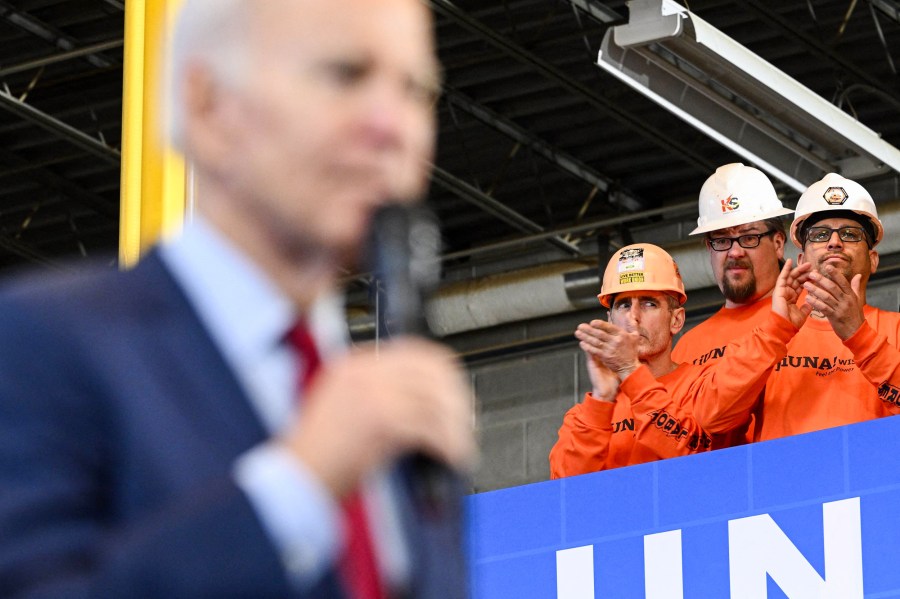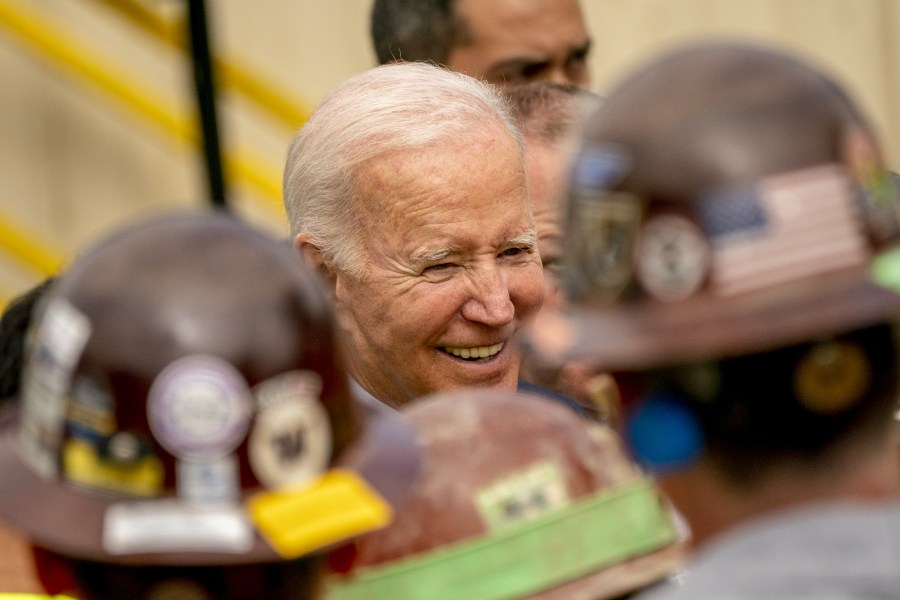“Which Side Are You On?”, the song written by Kentucky union activist Florence Reece about conflicts between coal miners and coal companies, has a verse that goes, “They say in Harlan County/There are no neutrals there/You’ll either be a union man/Or a thug for J.H. Blair.” (Blair was the county sheriff who helped the companies fight union-organizing in the early 1930s.) The song’s message is that one has to choose: Either you’re on the side of the company or the side of the workers. Neutrality is not an option.
With the United Auto Workers now striking against the Big Three automakers, it’s not nearly clear enough to the public just which side the two major political parties are on. President Biden, the self-proclaimed “most pro-union president in history,” has spoken in support of the workers but seems bizarrely reluctant to be seen as too supportive of the UAW and its demands. Meanwhile, former President Donald Trump — whose egotistical answer to the strike is that union leaders “should endorse Trump” — will travel to Detroit next week to give a speech to workers, where he’ll pretend to be on their side. Confusion is just what Republicans want, and just what Biden ought to change.
When this is over, far too many people may think Republicans are the ones standing up for workers.
The president’s political instincts are usually pretty sound, but in this case something has gone seriously awry. Biden ought to be standing on the picket line with striking autoworkers, so even voters who only glance at the news know exactly which side he’s on. But he isn’t. And when this is over, far too many people may think Republicans — whose hatred of unions knows no bounds — are the ones standing up for workers.
To be clear, the UAW is wise to Trump’s efforts. “Every fiber of our union is being poured into fighting the billionaire class and an economy that enriches people like Donald Trump at the expense of workers,” said UAW president Shawn Fain in a statement. Yet in 2016, Trump lost union households by only 8 points — better than any Republican presidential candidate since Ronald Reagan. That likely helped him in the Midwest, especially in Michigan, where every vote he could grab from Hillary Clinton made a difference.
Four years later, Biden beat Trump by a comfortable margin among those same voters. But Trump’s opportunity, and Biden’s risk, goes beyond just union households. The entire electorate will make judgments — accurate or otherwise — about whose interests the candidates are serving.

This is a pivotal moment in the ongoing struggle over labor rights, with the autoworkers’ strike part of a wave of labor actions, including the Hollywood writers and actors strike and efforts to organize companies such as Starbucks and Amazon. According to a recent Gallup poll, unions are more popular now than at any time since the 1960s, despite the fact that only 1 in 10 Americans is a union member. The same poll found that 75% of Americans support the UAW, not the car companies, in the autoworkers strike.
Because the UAW represents the kind of blue-collar manufacturing workers Republicans are eager to claim as their own, they have been far more vocal about this strike than others. But what can they say when their party and its corporate allies have waged a spectacularly successful war on organized labor that dates back decades?

Some Republicans have made their anti-union animus clear. When asked about the UAW strike, Sen. Tim Scott, R-S.C., invoked Reagan’s firing of striking air traffic controllers in 1981, the seminal moment in the GOP war on collective bargaining. Fellow South Carolinian Nikki Haley proudly calls herself a “union-buster.” As governor back in 2014, she said, “We discourage any companies that have unions from wanting to come to South Carolina because we don’t want to taint the water.”
But others have attempted a kind of sidestep, arguing that the real problem facing autoworkers is the Biden administration’s promotion of green energy and electric vehicles. Sen. J.D. Vance, R-Ohio, for instance, tweeted that he was “Rooting for the auto workers across our country demanding higher wages and an end to political leadership’s green war on their industry.” Florida Gov. Ron DeSantis claims rolling back incentives for EVs “will mean more autoworker jobs.” This is not only absurd (no one is being prevented from buying gas-powered cars if they want to), but ignores the issues of fair treatment that are driving the UAW strike.
Similarly, Trump claims that there should be no attempt to ease the transition to EVs, because “the electric cars, automatically, are going to be made in China.” In fact, the Big Three are desperately trying to catch up to their competitors on EVs, and the Biden administration’s efforts are geared toward American manufacturing of EVs and batteries. Among other things, the government is providing subsidies for domestic manufacturing and incentives to purchase EVs made in the U.S.














